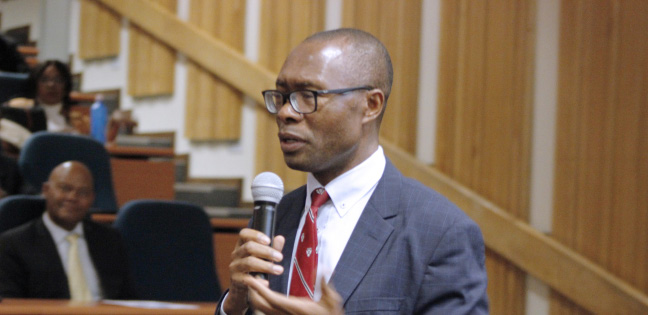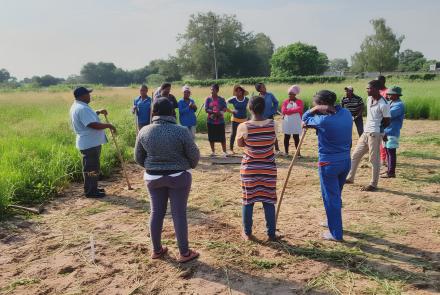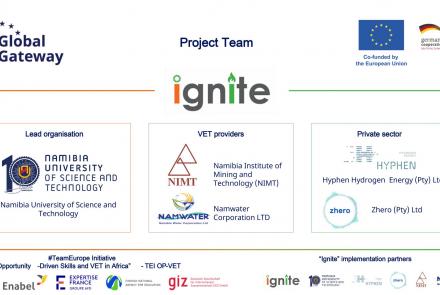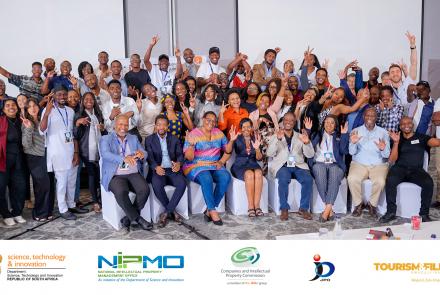Finance Minister unpacks the National Budget allocation to human capital development in Namibia
On a cold winter’s evening, the Minister of Finance and Public Enterprises, Hon Ipumbu Shiimi, took to the podium in a lecture venue on the NUST campus to deliver a public lecture titled, “Assessing the National Budget’s Allocative Efficiency for Human Capital Development. The Minister disected the National Budget, sign-posting key trends, concerns and recommendations for basic and higher education.
Diversity of skills and efficiency were theleitmotif of his lecture, with a keen emphasison understanding the country’s needs. “If you continue to develop the same thing in your country, you will not grow. You need to diversify,” he cautioned.Joining the conversation, was Phanuel Kaapama, a Senior Lecturer from the University of Namibia (UNAM), who expressed that the nation’s weak learning outcomes speaks to the quality of students who graduate. “These failed investments are irreplaceable,” he continued, while adding that quality education is feasible, provided that problem-solving techniques start at grassroots level. Digging deeper into the budget allocation, Hon Shiimi revealed that a total of N$40.7 billion was allocated for human capital development. As he systematically unpacked the budget, he pointed out that N$12.4 billion went to education, N$20.6 billion to health, and N$7.7 billion to the social safety net. “This shows stability, and that Namibia trails close to other high-middle-income countries in terms of health and education,” he elaborated.
The Finance Minister further indicated that problems in the education system include overaged enrolment, weak learning outcomes, high repetition and early dropout rates, and inadequate services in remote rural areas. He suggested that management be improved, investment be channeled into teacher training, and re-allocation of resources be made to early childhood development. A key recommendation that emerged in the discussion was that universities need to ensure that their skills output is aligned with the nation’s demands and that research should also be conducted to improve productivity in agriculture and green hydrogen, respectively.
“To attain this, the Education Reform Strategy (ERS) was launched in 2022 to address current educational issues. The focus now lies with the implementation process,” Hon Shiimi said. Since education is deemed a Fundamental Constitutional Right, the ERS will serve as an engine to drive the development of individual levels, while addressing other crucial social challenges such as unemployment and poverty. Various senior members of the University community and students attended the public lecture, which lasted well over two hours, with the majority of engagements coming from the students.






